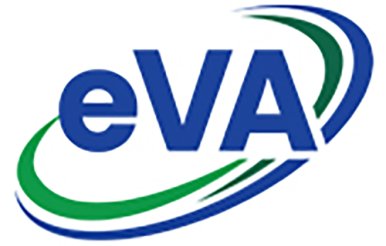eVA is the Commonwealth of Virginia’s web-based procurement tool designed to enhance the efficiency of the procurement process. Utilization of eVA is required for purchasing transactions greater than $5,000.
As stated in the Board of Visitors Policy 1627: Procurement Reporting Exemptions, the University will utilize eVA as its primary procurement tool, supplemented by the small purchase charge card (PCard). All procurement transactions over $5,000 must be entered into eVA.
To register for training sessions or learn more, please visit the Procurement Services Training webpage.
Establishing An Account
To establish an eVA account with ODU, you must complete:
- eVA User Request & Acceptable Use Acknowledgment Form
- SWaM Training
- Ethics in Procurement Training
- Procurement & eVA Training
Send confirmation to procurement@odu.edu when these are complete.
Training & Guidance
The eVA User Guide is a manual that serves as a step-by-step guide on how to place an order through eVA. It includes instructions on how to:
- Login to eVA
- Create a Purchase Requisition
- Add Line Items
- Add a Supplier
- Ordering from a Contract
- Add Allocation
- Check approval flow
- And more!
The eVA & eReceiving Training Manual provides an overview of the eVA Program, with information on:
- The purpose of eVA and the University's procurement policy
- eVA Transactions in Banner
- Verifying Vendors are on the Banner Vendor Table and eVA Database
- Quick Quote Requests
- Purchase Order (PO) Categories
- Developing a Purchase Requisition
- ETF Purchase Orders
- Purchase Requisition Status
- Change Orders / Modifications
- Banner eReceiving
The ETF Process Guideline is a step-by-step instructional form to guide you through the ETF procedure.
Please note a change in the ETF process this year:
- Components of a system should be entered on separate line items of the purchase order with the exception of software. Any related software should be noted with cost on the same line item as equipment.
- Each line item should reference the corresponding ETF authorization number for the system.
Reminders:
- ETF items, with the exception of equipment that requires installation and/or calibration, must be delivered to ODU Property Control. Please see 'Ship To' Address section in the ETF Process Guideline.
- Final delivery location shall be included in the overall PO comment section on the PR. Please see On Campus 'Deliver To' Address section in the ETF Process Guideline.
All eVA Purchase Orders require the entry of a purchase order (PO) category. Purchase order categories are entered on the 'Add Title' screen of the eVA purchase requisition in the PO Category field. A guide to the appropriate use of PO Categories is listed below.
- R01 - Routine: Should be used for all routine purchases with the exception of the exempt categories orders (see Exempt Category List below).
- S01 - Sole Source: Should only be used for sole source purchases.
- E01 - Emergency: Should only be used for emergency purchases.
- X02 - Exclusion Exempt: Should be used for purchases for one of the eVA exempt categories listed below.
The following Procurement Types are for use in the "Header Section" of ALL requisitions and will be a required field. The Procurement Transaction Type should be selected to best fit the overall purchase on your requisition. There will be situations where requisitions include a mix of products and services, in these cases we need to determine the 'over all' purchase or use the 50% Rule.
- Construction
- Cooperative Procurement
- Energy Performance
- Equipment – Non-Technology
- Equipment – Technology
- Grant Opportunity
- Highway Construction
- IMPORT
- Non-Procurement or Other
- Non-professional Services – Non-Technology
- Non-professional Services – Technology
- PPEA/PPTA
- Printing
- Professional Services
- Professional Services – Construction Related
- Real Property
- Supplies – Non-Technology
- Supplies – Technology
- Surplus
The eVA User Guide is a manual that serves as a step-by-step guide on how to place an order through eVA. It includes instructions on how to:
- Login to eVA
- Create a Purchase Requisition
- Add Line Items
- Add a Supplier
- Ordering from a Contract
- Add Allocation
- Check approval flow
- And more!
The eVA & eReceiving Training Manual provides an overview of the eVA Program, with information on:
- The purpose of eVA and the University's procurement policy
- eVA Transactions in Banner
- Verifying Vendors are on the Banner Vendor Table and eVA Database
- Quick Quote Requests
- Purchase Order (PO) Categories
- Developing a Purchase Requisition
- ETF Purchase Orders
- Purchase Requisition Status
- Change Orders / Modifications
- Banner eReceiving
The ETF Process Guideline is a step-by-step instructional form to guide you through the ETF procedure.
Please note a change in the ETF process this year:
- Components of a system should be entered on separate line items of the purchase order with the exception of software. Any related software should be noted with cost on the same line item as equipment.
- Each line item should reference the corresponding ETF authorization number for the system.
Reminders:
- ETF items, with the exception of equipment that requires installation and/or calibration, must be delivered to ODU Property Control. Please see 'Ship To' Address section in the ETF Process Guideline.
- Final delivery location shall be included in the overall PO comment section on the PR. Please see On Campus 'Deliver To' Address section in the ETF Process Guideline.
All eVA Purchase Orders require the entry of a purchase order (PO) category. Purchase order categories are entered on the 'Add Title' screen of the eVA purchase requisition in the PO Category field. A guide to the appropriate use of PO Categories is listed below.
- R01 - Routine: Should be used for all routine purchases with the exception of the exempt categories orders (see Exempt Category List below).
- S01 - Sole Source: Should only be used for sole source purchases.
- E01 - Emergency: Should only be used for emergency purchases.
- X02 - Exclusion Exempt: Should be used for purchases for one of the eVA exempt categories listed below.
The following Procurement Types are for use in the "Header Section" of ALL requisitions and will be a required field. The Procurement Transaction Type should be selected to best fit the overall purchase on your requisition. There will be situations where requisitions include a mix of products and services, in these cases we need to determine the 'over all' purchase or use the 50% Rule.
- Construction
- Cooperative Procurement
- Energy Performance
- Equipment – Non-Technology
- Equipment – Technology
- Grant Opportunity
- Highway Construction
- IMPORT
- Non-Procurement or Other
- Non-professional Services – Non-Technology
- Non-professional Services – Technology
- PPEA/PPTA
- Printing
- Professional Services
- Professional Services – Construction Related
- Real Property
- Supplies – Non-Technology
- Supplies – Technology
- Surplus
Procurement Services
eVA Frequently Asked Questions
The document below provides steps to check a supplier's status in Banner. Suppliers must be in Banner for payments to be issued to them.
eVA is the Commonwealth of Virginia's electronic procurement system.
All procurement transactions over $5,000 must be entered into eVA. If a vendor is not eVA registered, we strongly encourage them to get registered to do business with the University.
After completing required training, complete the eVA User Request and Acceptable Use Acknowledgment Form and submit to procurement@odu.edu.
eVA Training is provided by Procurement Services and online SWaM training is required before a new eVA account is issued.
eVA registration information can be found at http://www.eva.virginia.gov or contact eVA Customer Care at 866-289-7367/804-371-2525, or email at eVACustomerCare@dgs.virginia.gov
Yes. You can find out more information on our eVA for Vendors page.
First you should ask the vendor to register. If they refuse to, you must ask the vendor to submit a Commonwealth of Virginia Substitute W-9 form (found on the Office of Finance's website) to procuement@odu.edu. Procurement Services will then submit the vendor information to eVA for them to become state registered. The process takes 3-5 business days for eVA to complete the IRS verification and load the vendor into eVA.
No, if you use multiple vendors on one purchase requisition you will get multiple POs.
Please refer to PO Category Guidelines.
Please refer to the eVA User Guide, slide no. 63 through slide no. 64.
Please refer to the eVA User Guide section on change orders.
Only the original requestor can create a change order and must add a note in the comments section clarifying why the change was created. Change orders can only be done for change in cost/quantity. Change orders should not be done for accounting changes. Never delete a line item. You can zero out the unit price and note in the description the reason for the change.
Please refer to the eVA User Guide, slide no. 43 through slide no. 47.
Every eVA account has email notification preferences. The default setting is setup to send emails immediately whether your PR has been fully approved, denied or awaiting approval. You can adjust these settings to accommodate your needs.
Please refer to the eVA User Guide, slide no. 29 through slide no. 34.
Please refer to the eVA User Guide, slide no. 48 through slide no. 51.
From the main page in eVA select the Reports & Documents link on the left hand side, on the next screen click on the Advanced Tools Tab. Under Vendor Reports select the report "Look up Basic Vendor". This will search vendor info by tax id number and will ensure correct selection of vendor for those who trade under a different name (i.e. Springhill Suite is BBL) also ensures match with BANNER import or need for a W9.
From the main page in eVA select the Reports & Documents link on the left hand side, on the next screen click on the Advanced Tools tab. Under Accounts Payable Tools select "Purchase Order Report" (under description.) Click on the link to the left of the description, another screen will appear, enter your purchase order number and click submit.
The new fiscal year period is generally opened in eVA around the first week of June and shall be used only for goods/services that will be read and paid for in the new fiscal year. These POs will not import into BANNER until July 1st.
A complete list of sub-account codes are listed on the Budget Offices website under Expense Sub Accounts.
The title needs to note "Quick Quote" or "needs Quick Quote".
In the "ship to" drop down menu select Central Receiving/Property Control. This is a requirement to ensure timely tagging for inventory and required documentation in BANNER.
Select the denied PR, scroll down to the comments field. This is where the comments will be when a PR is denied. Once changes have been made you can resubmit the PR by selecting submit.
Tax Forms & Instructions

eVA Updates



